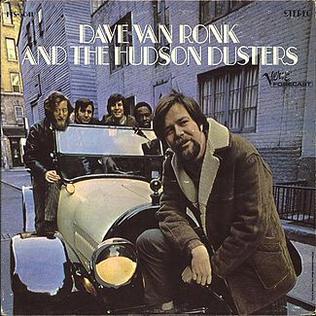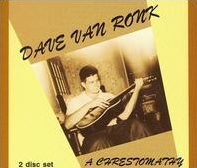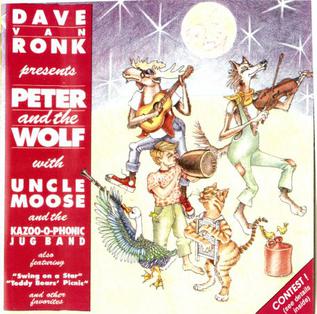
A jug band is a band employing a jug player and a mix of conventional and homemade instruments. These homemade instruments are ordinary objects adapted to or modified for making sound, like the washtub bass, washboard, spoons, bones, stovepipe, jew's harp, and comb and tissue paper. The term jug band is loosely used in referring to ensembles that also incorporate homemade instruments but that are more accurately called skiffle bands, spasm bands, or juke bands because they do not include a jug player.

David Kenneth Ritz Van Ronk was an American folk singer. An important figure in the American folk music revival and New York City's Greenwich Village scene in the 1960s, he was nicknamed the "Mayor of MacDougal Street".

Noah Lewis was an American jug band and country blues musician, generally known for playing the harmonica.

The Blues Project is a band from the Greenwich Village neighborhood of New York City that was formed in 1965 and originally split up in 1967. Their songs drew from a wide array of musical styles. They are most remembered as one of the most artful practitioners of pop music, influenced as it was by folk, blues, rhythm & blues, jazz and the pop music of the day.

"Stealin" is an American blues song from the 1920s. It originated with jug bands, but gained wider popularity after several 1960s contemporary folk musicians recorded it. Although various artists have recorded different verses, the chorus has remained consistent:
Luke Faust is an American folk musician. In the early 1960s he played a five-string banjo and sang Appalachian ballads, at The Gaslight Cafe in Greenwich Village, New York City. For five or six years, Faust performed with Jerry Rasmussen. One of his fellow entertainers at the Gaslight was Bob Dylan, who described Faust as "Someone closer in temperament to me."
Danny Kalb is an American blues guitarist and vocalist. He was an original member of the 1960s group the Blues Project.

Jim Kweskin is an American folk, jazz, and blues musician, most notable as the founder of the Jim Kweskin Jug Band, also known as Jim Kweskin and the Jug Band, with Fritz Richmond, Geoff Muldaur, Bob Siggins and Bruno Wolfe. The Jug Band was a significant part of the folk and blues revival of the 1960s. Maria Muldaur, formerly with the Even Dozen Jug Band, joined the band in 1963. During the five years they were together, the Jug Band successfully modernized the sounds of pre–World War II rural music.

Mother McCree's Uptown Jug Champions is an American folk music album. It was recorded live by the band of the same name at the Top of the Tangent coffee house in Palo Alto, California in July, 1964, and released in 1999.
The Ffilharmonious Jug Band was an Anglo-American Jug band group in England in the late 1960s. Members were American Jeff Wilson, American Jim Johnson, Briton Doug Kyle, and Canadian, Pete Ballan.

Dave van Ronk and the Hudson Dusters is a 1967 album featuring Dave Van Ronk.

A Chrestomathy is a retrospective two-CD compilation of songs by Dave Van Ronk released in 1992.

The Mayor of MacDougal Street: Rarities 1957-1969 is a compilation album by American folksinger Dave Van Ronk, released in 2005.

The Long Ride is an album by American folk musician Ramblin' Jack Elliott, released in 1999.

Adventures for 12 string, 6 string and banjo is an album by American folk guitarist Dick Rosmini, released in 1964. It is out of print in LP format, appears never to have been released in CD format, and has been available as an MP3 download since October 5, 2010.

The Even Dozen Jug Band is the debut and only studio album by the American jug band Even Dozen Jug Band, released in 1964.

Dave van Ronk presents Peter and the Wolf with Uncle Moose and the Kazoo-O-Phonic Jug Band is a 1990 album by Dave Van Ronk.

Ricochet is the second album, by the Nitty Gritty Dirt Band, and their second album release of 1967, being released only four or five months after their first album, The Nitty Gritty Dirt Band, which was released in February or March, 1967. It appears that this album may have been released rather quickly after their first album because that album had been only the second Liberty Records release of 1967 to make the Billboard Top Pop Albums chart, the first being Gary Lewis & the Playboys You Don't Have To Paint Me A Picture LP, which charted in February. Unfortunately, Ricochet would fail to make the charts.

Rare Junk is the third album from The Nitty Gritty Dirt Band, released in 1968. In an attempt to update their sound the band included electric instrumentation on the record, but it still was a commercial failure.

Alive is the 1969 album from The Nitty Gritty Dirt Band. Liberty Records released this album after the original version of the band broke up and before the next version of the band re-signed with them. John McEuen would later recall that "we did [the album] at the Troubador and there were mountains of equipment on stage because Poco were on the same bill with us." Given McEuen's comment, it appears that the documented performance occurred on either December 6 or 7, 1968. The band would break up within weeks of this show.
















